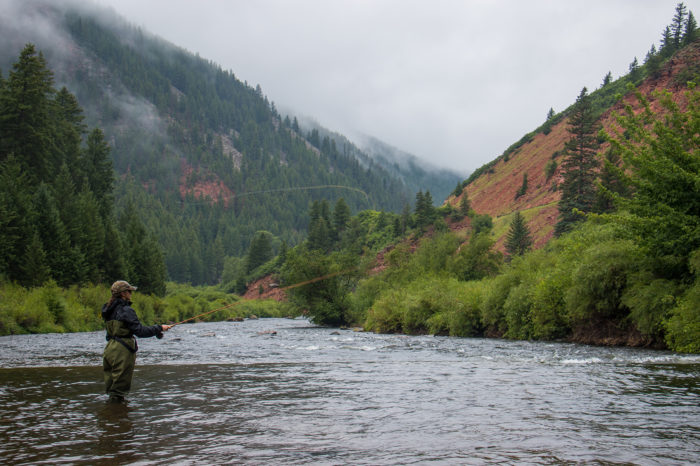
I’m about two and a half months back into the academic grind at the University of Colorado Boulder, and life is good. My classes are interesting, grades are decent, I hike every weekend, I take plenty of photos. But there’s been something missing, and I couldn’t figure out what it was until I got a chance to catch up with my dad a few days ago.
Rivers.
I spent all summer next to a river. I worked a full-time job on Clear Creek in Idaho Springs. I paid homage to the Roaring Fork Valley and its gold-medal waters for multiple fishing trips. I spent twelve days and eleven nights on the Colorado River in the Grand Canyon. Rushing water was the soundtrack of my summer.
Today I finally found a few extra hours after class, and drove up Boulder Canyon to fish. I parked my car, rigged my rod, and walked a little ways down to Boulder Creek where I made two casts before a fish hit my fly. This— is what I had been missing.
I started thinking about my time spent in the Roaring Fork Valley, between Glenwood Springs and Aspen. I spent a good part of my childhood there, camping with my family, playing in open fields with my brother and our dog, walking through groves of aspen trees, and fishing. The Frying Pan River, in particular, is a part of me. I learned to fish there, I grew up there, I’ll always return there.
How many times have I stood at the gauging station in the Rocky Fork Day Use Area, about 13 miles up the Frying Pan Road from Basalt, and caught a rainbow trout with my dad standing next to me? How many times have I stood in the pouring rain, laughing and reeling in a fish at Old Faithful? How many times have my dad and I driven up and down that windy road, singing along to Jimmy Buffet and gazing off at the iron-red Seven Castles?
My dad always tells me with a chuckle that when he dies, he wants to be cremated and thrown in the Frying Pan.
These rivers are more than just “nature”. They’re memories, history, religion. There’s a reason why the Confluence of the Little Colorado is a sacred place to the Piute people. There’s a reason why Clear Creek County makes tens of millions of dollars every summer just through the rafting industry. There’s a reason why the Roaring Fork and Frying Pan are iconic rivers for fly-fisherman.
One day over the summer while I was working on Clear Creek, I was talking to a girl I had just met about my photography, and she asked me if I could take photos of one thing for the rest of my life, what would it be? Without thinking, I responded, “rivers”.
Rivers connect people to places. They are an essential lifeline between mountains, valleys, deserts, and oceans. They provide people with infinite intrinsic value, places to reflect, and sources of inspiration. “Don’t fight the river,” my mentor always told me. Rivers are an allegory for life—always moving, always flowing, always reaching new places.
They’ve most definitely shaped who I am.
The few therapeutic hours I spent on Boulder Creek today was exactly what I needed, a little bit of nature, a little reflection, a little inspiration. I’m sure I’ll be driving back for more tomorrow.
